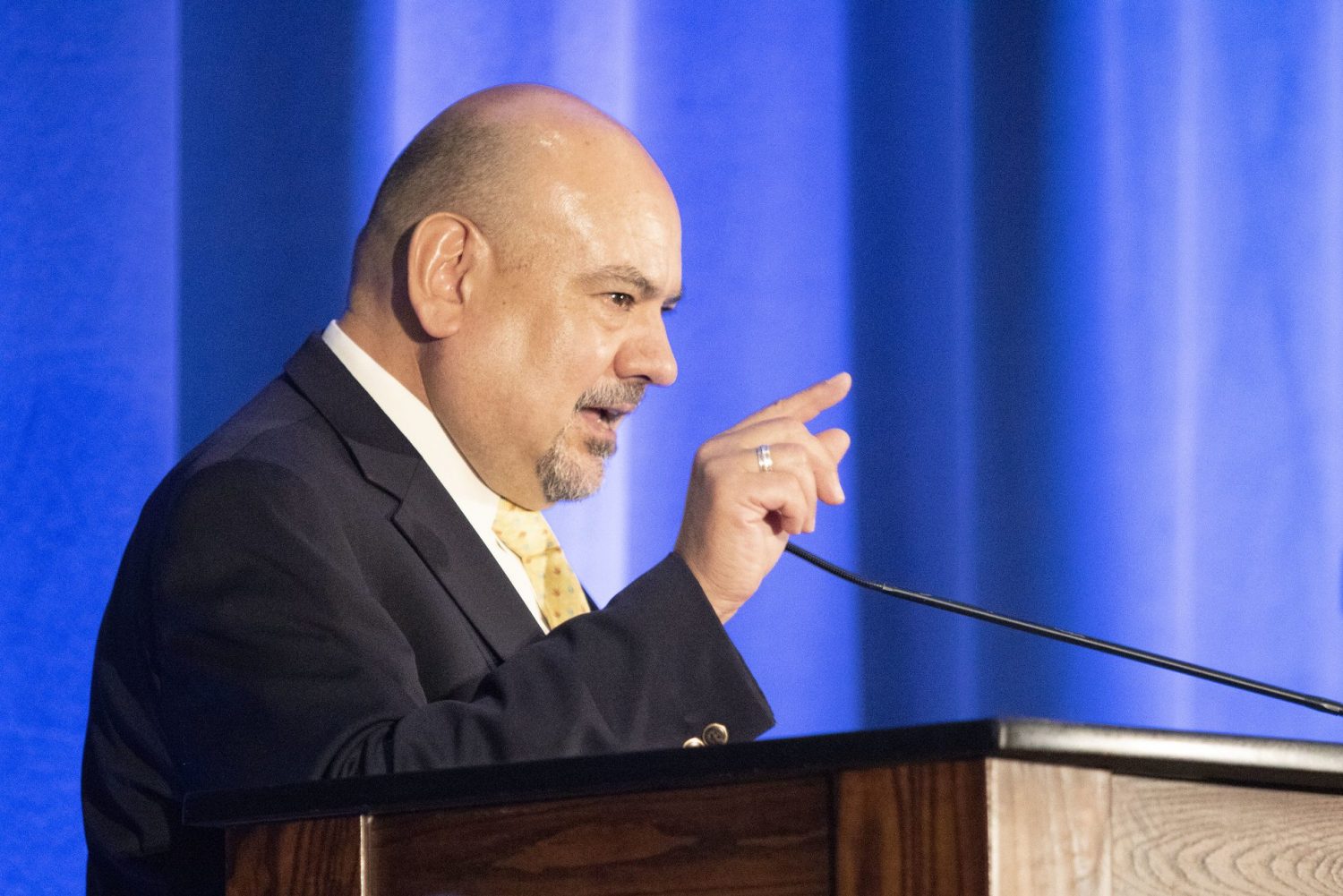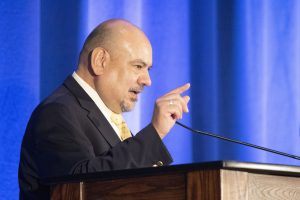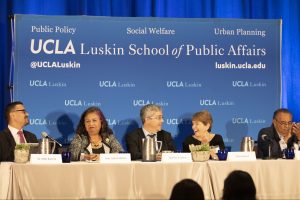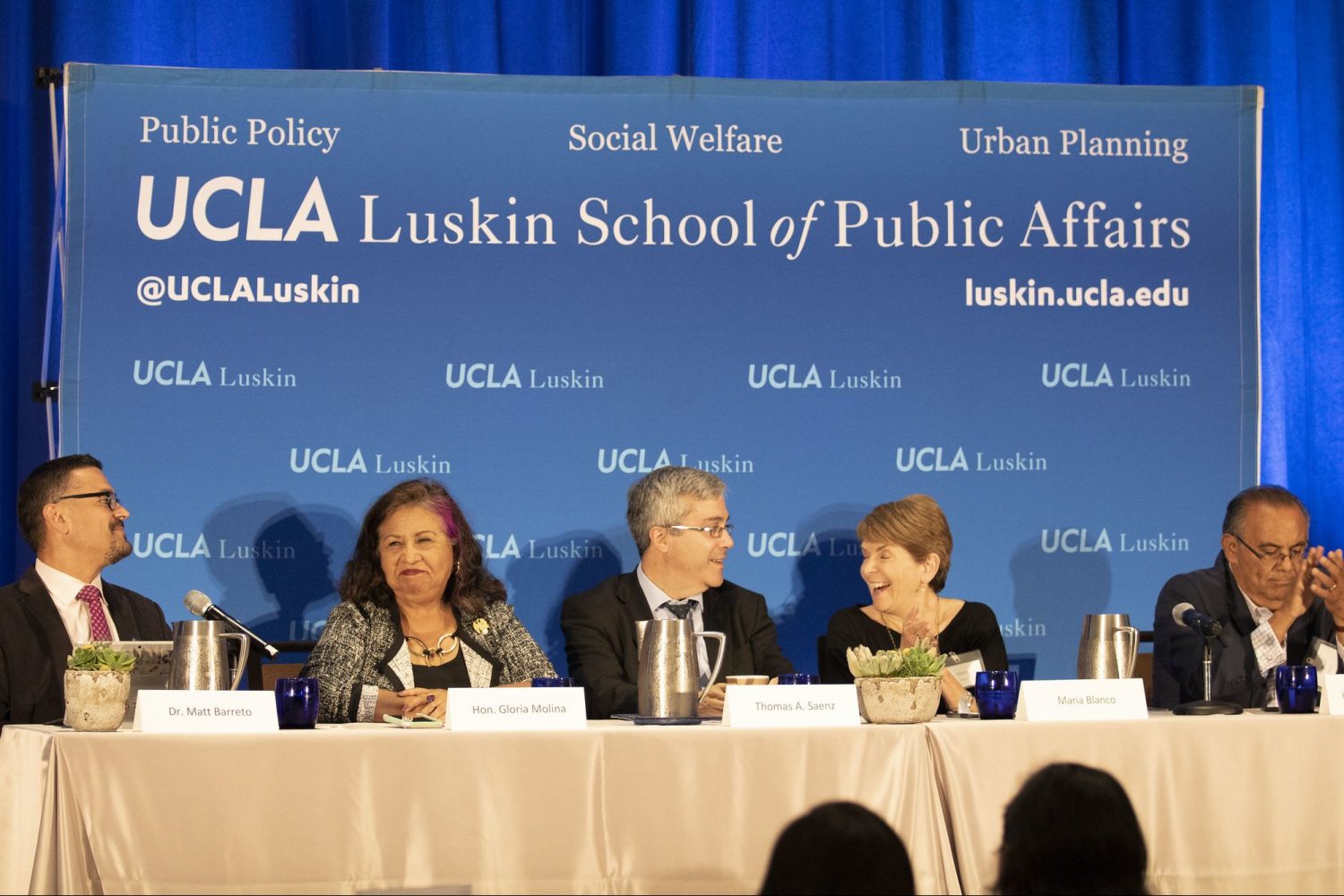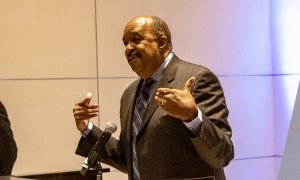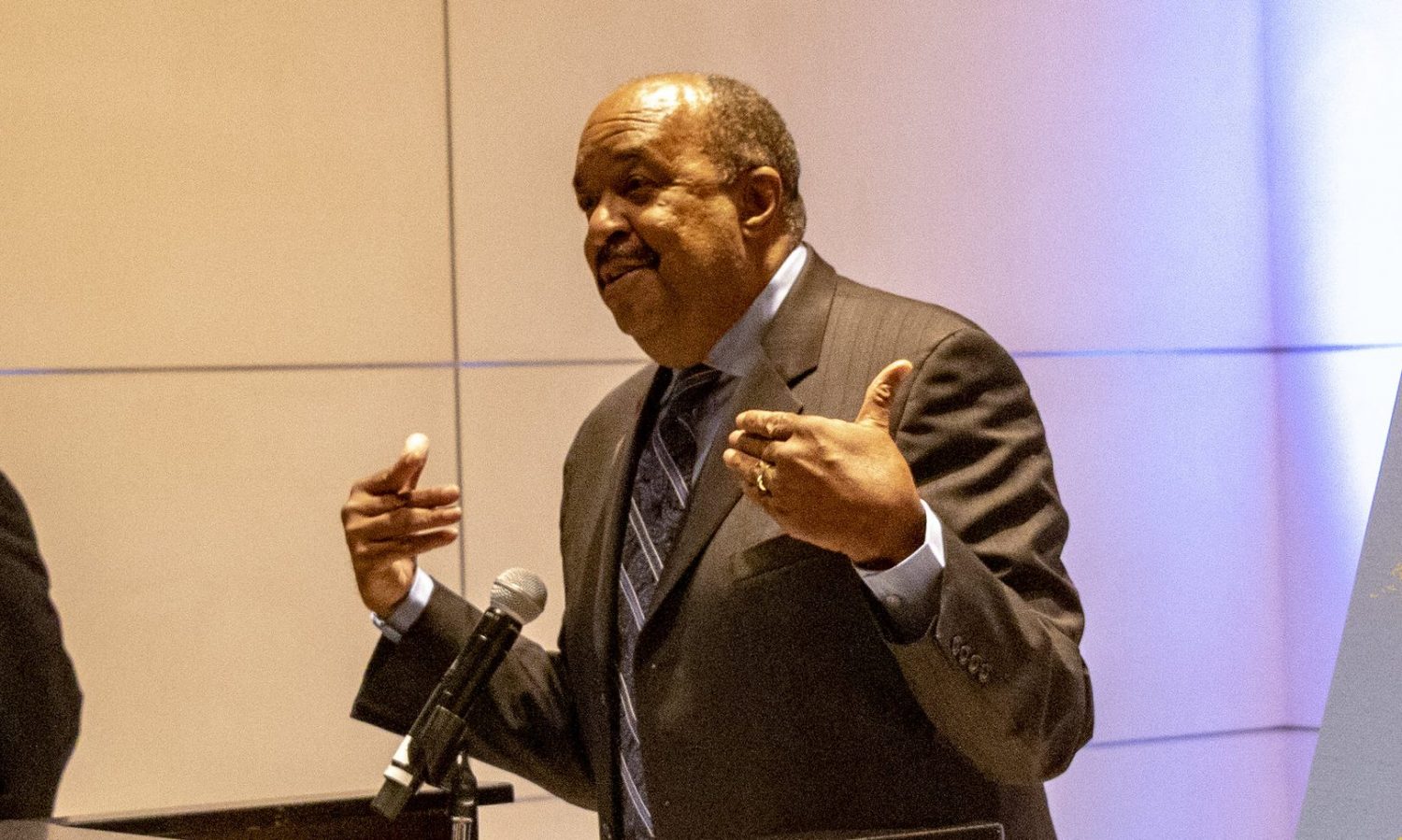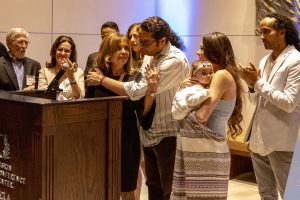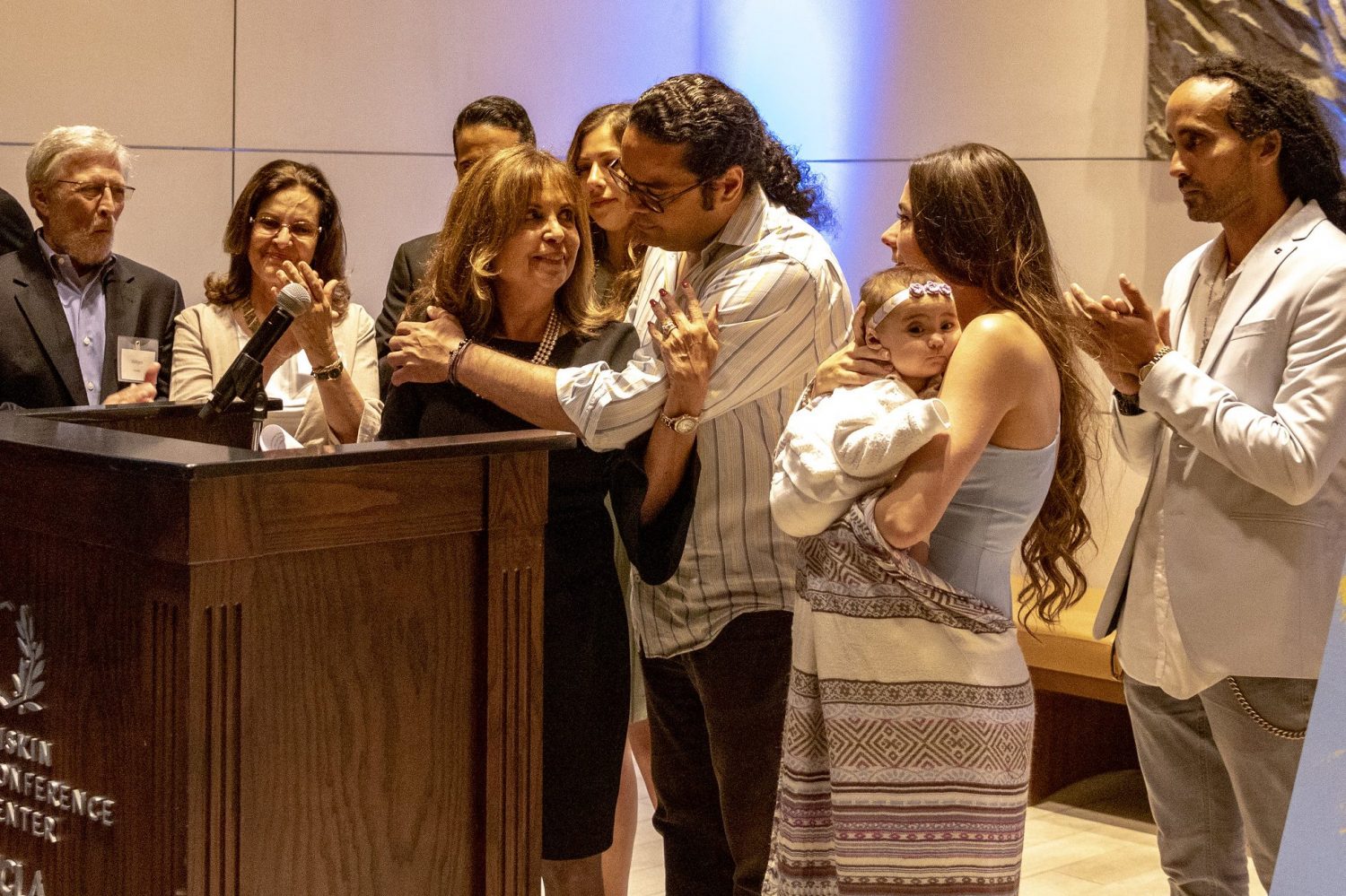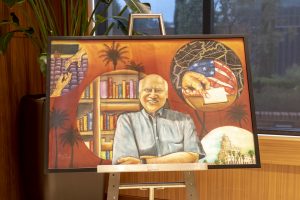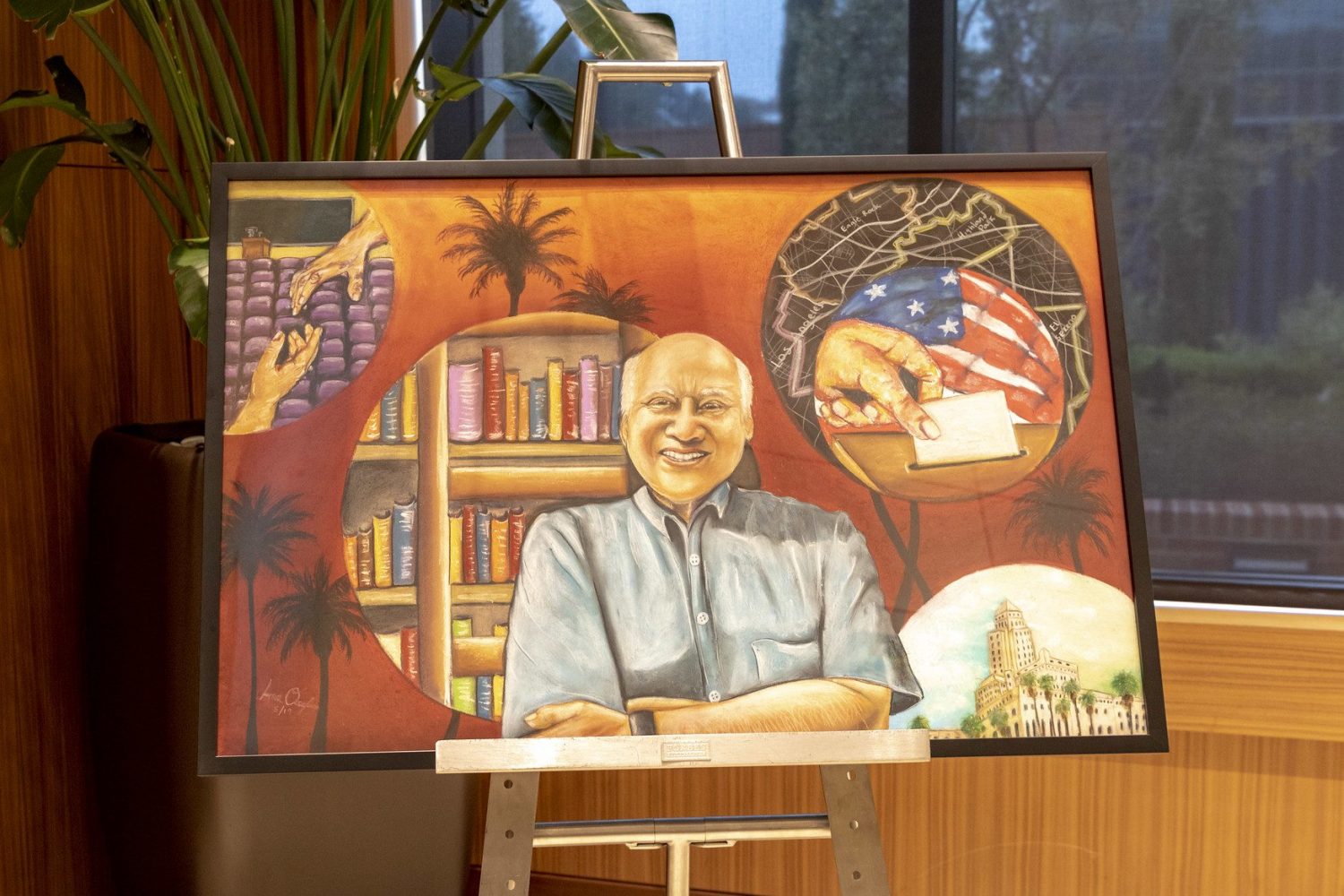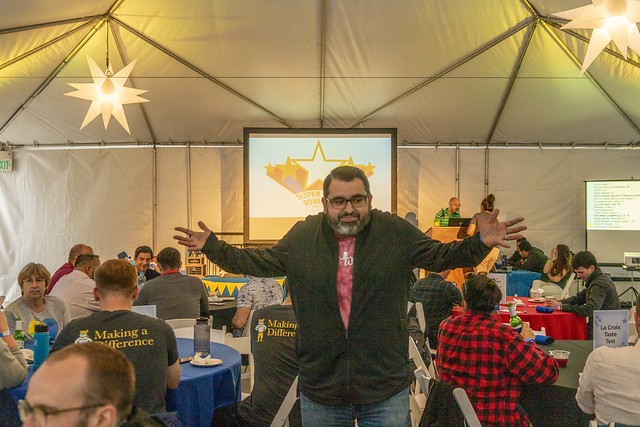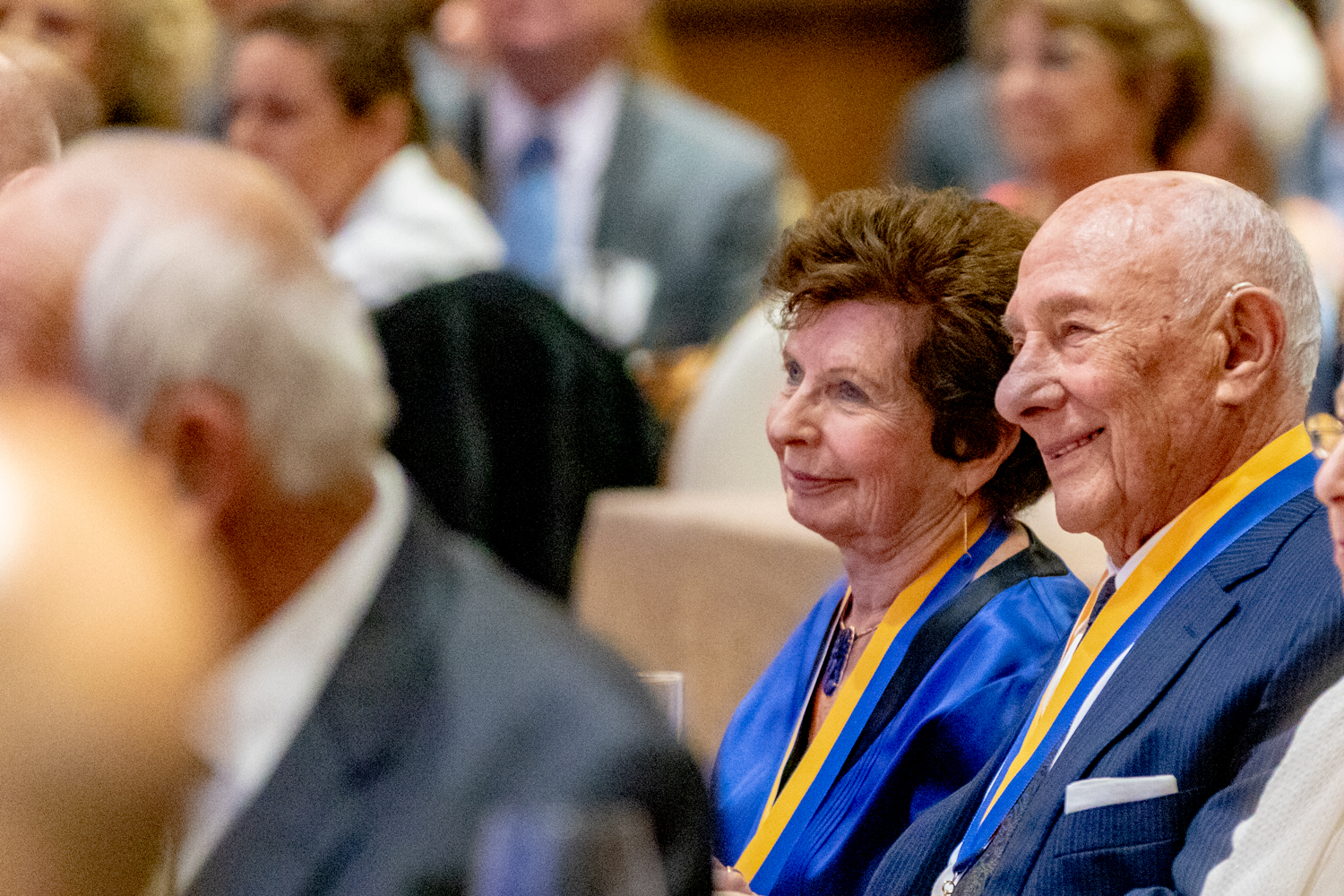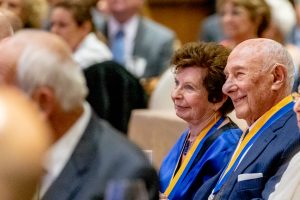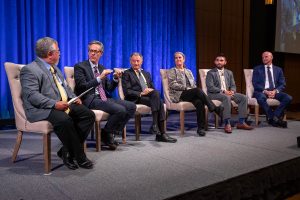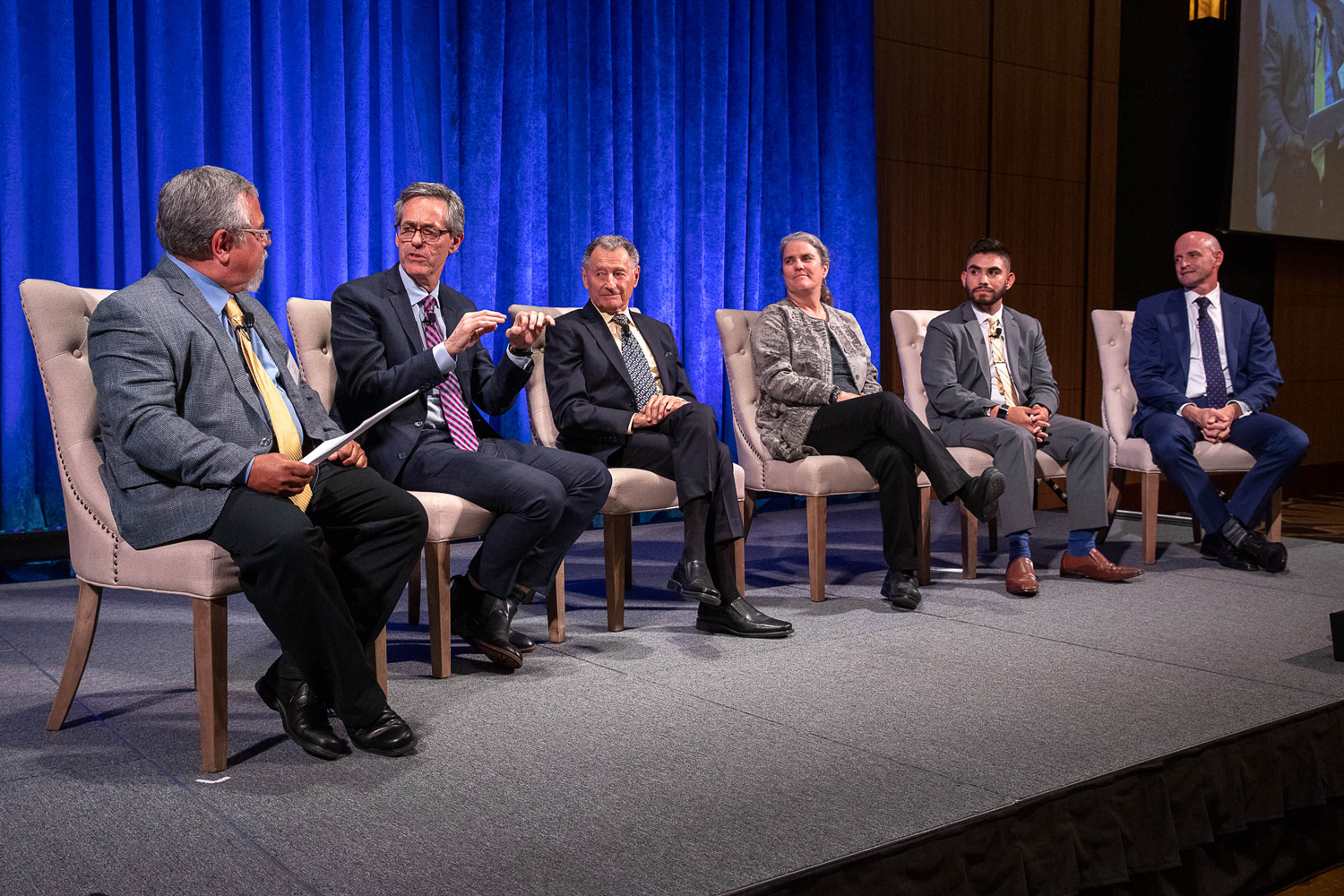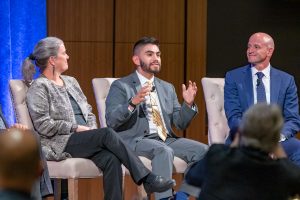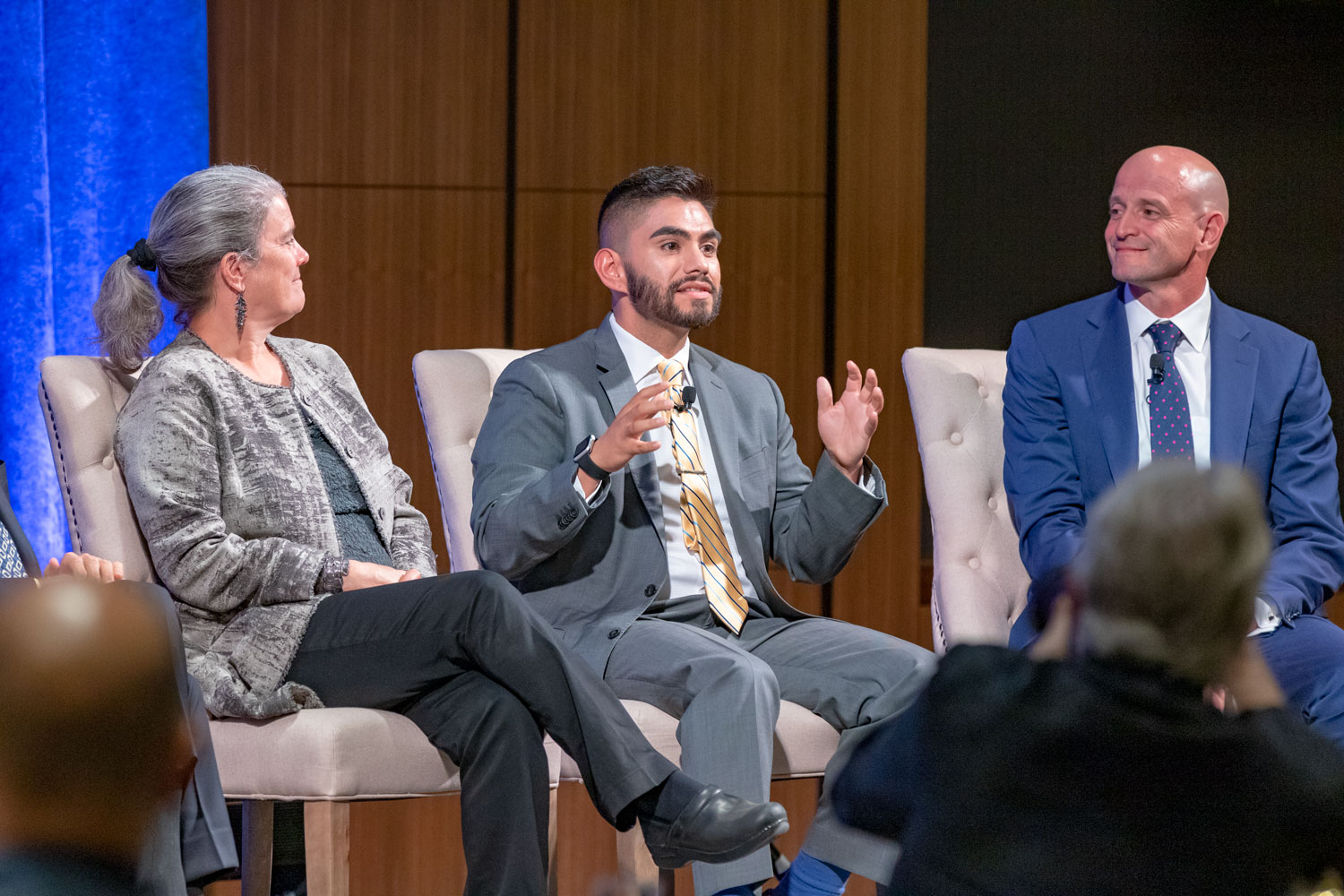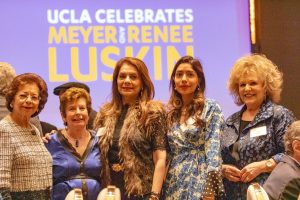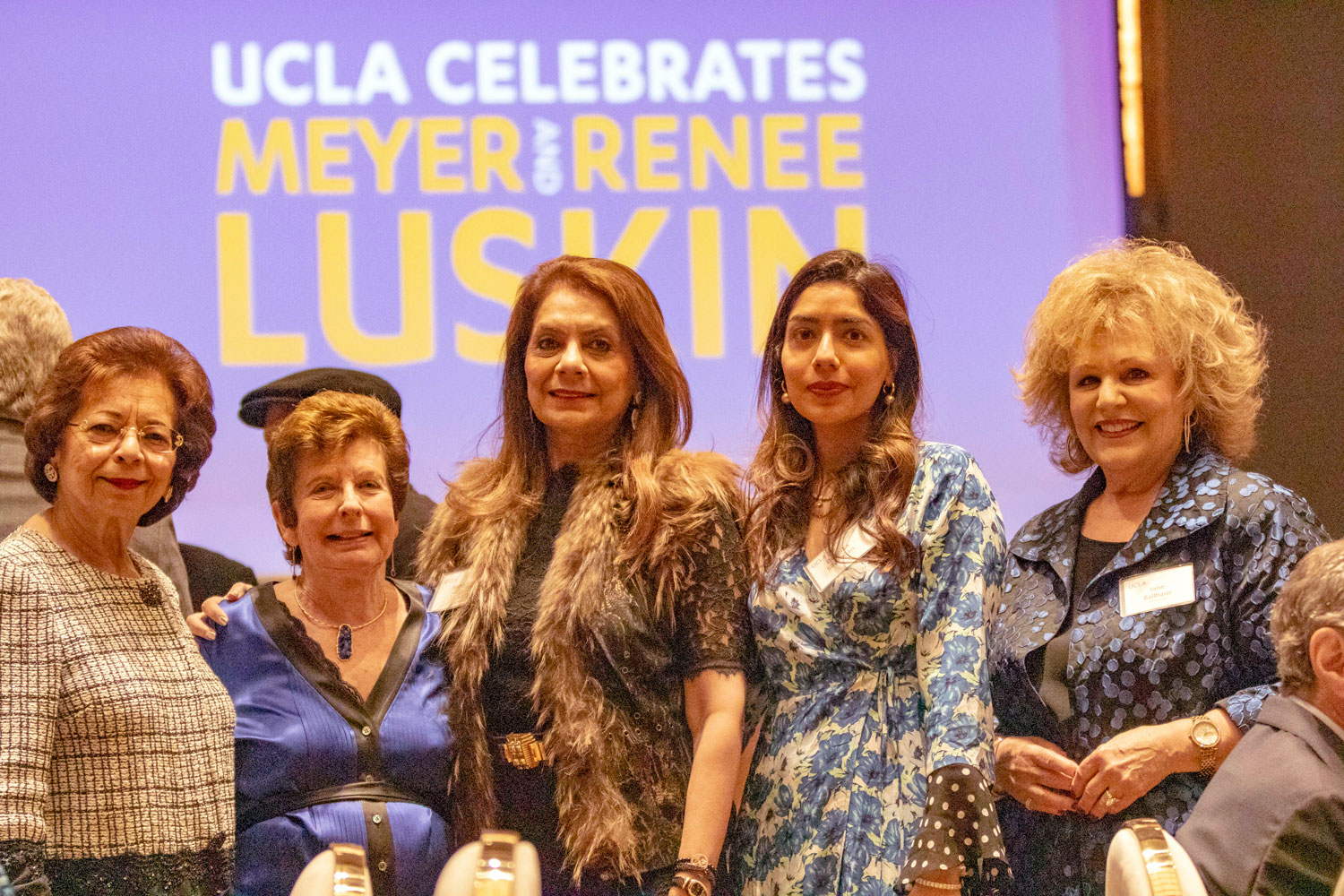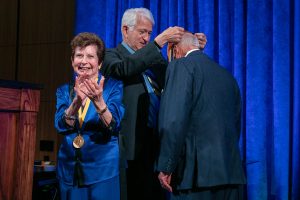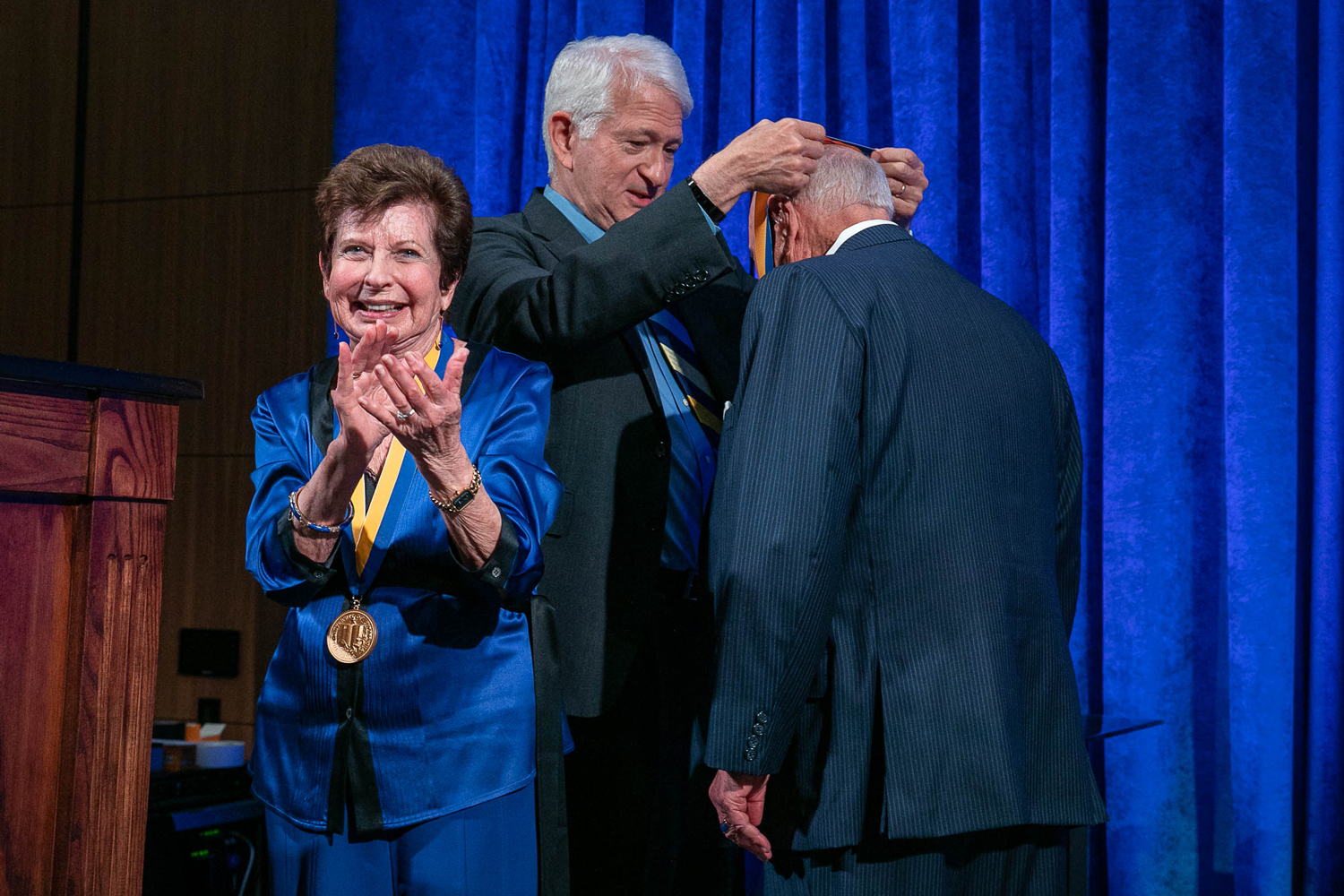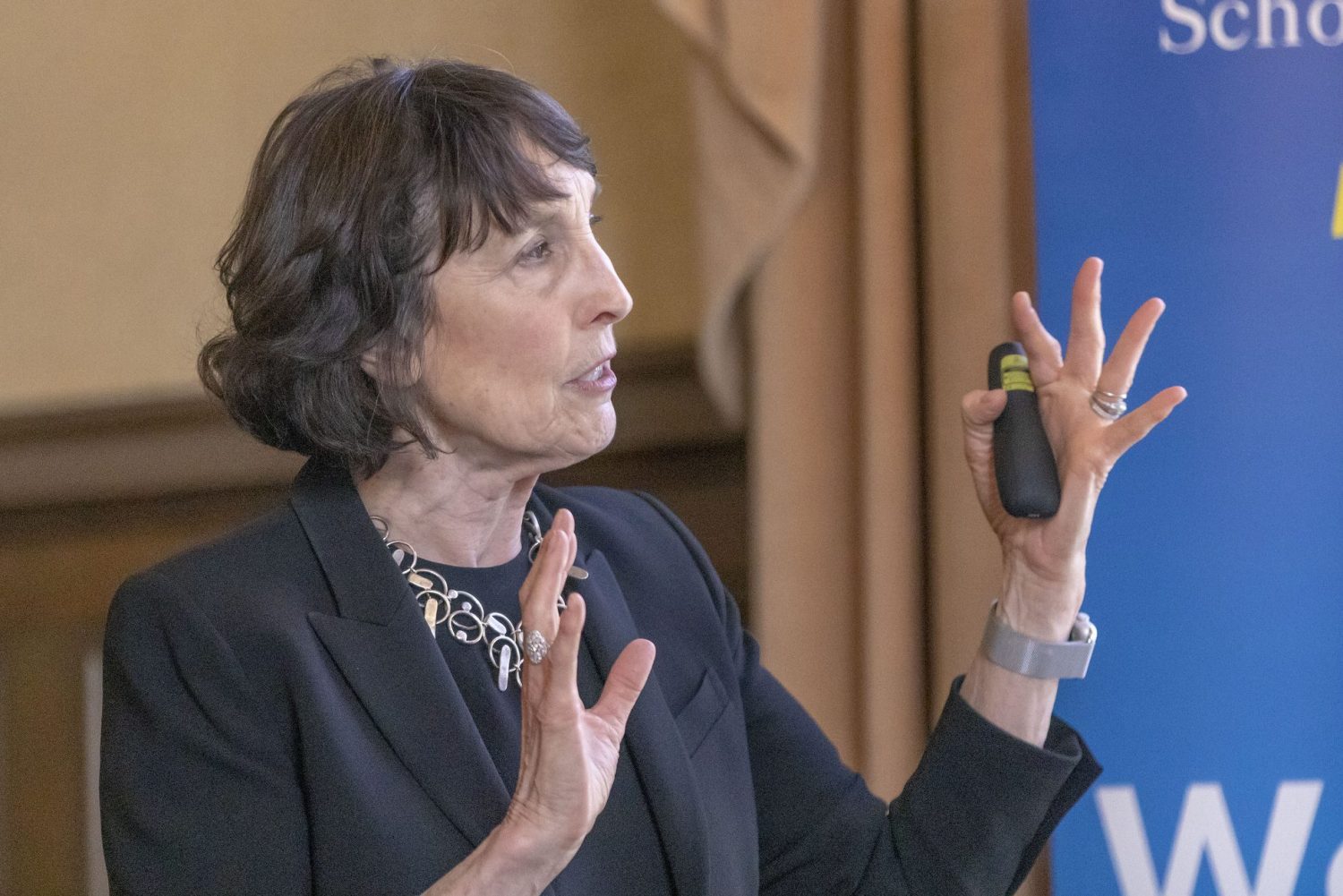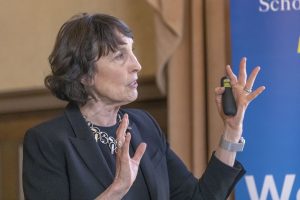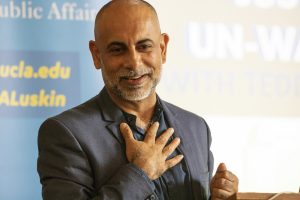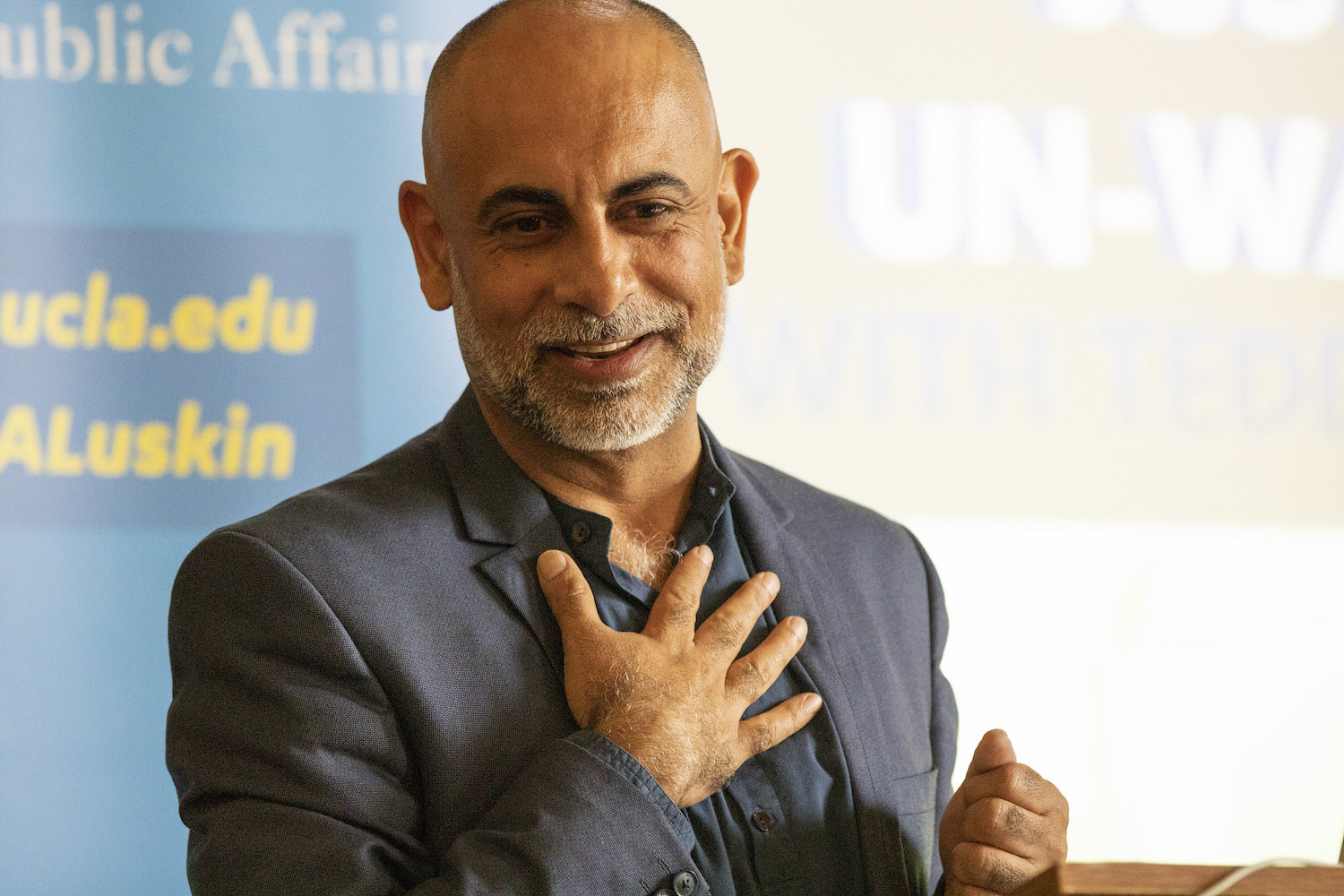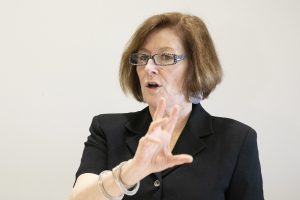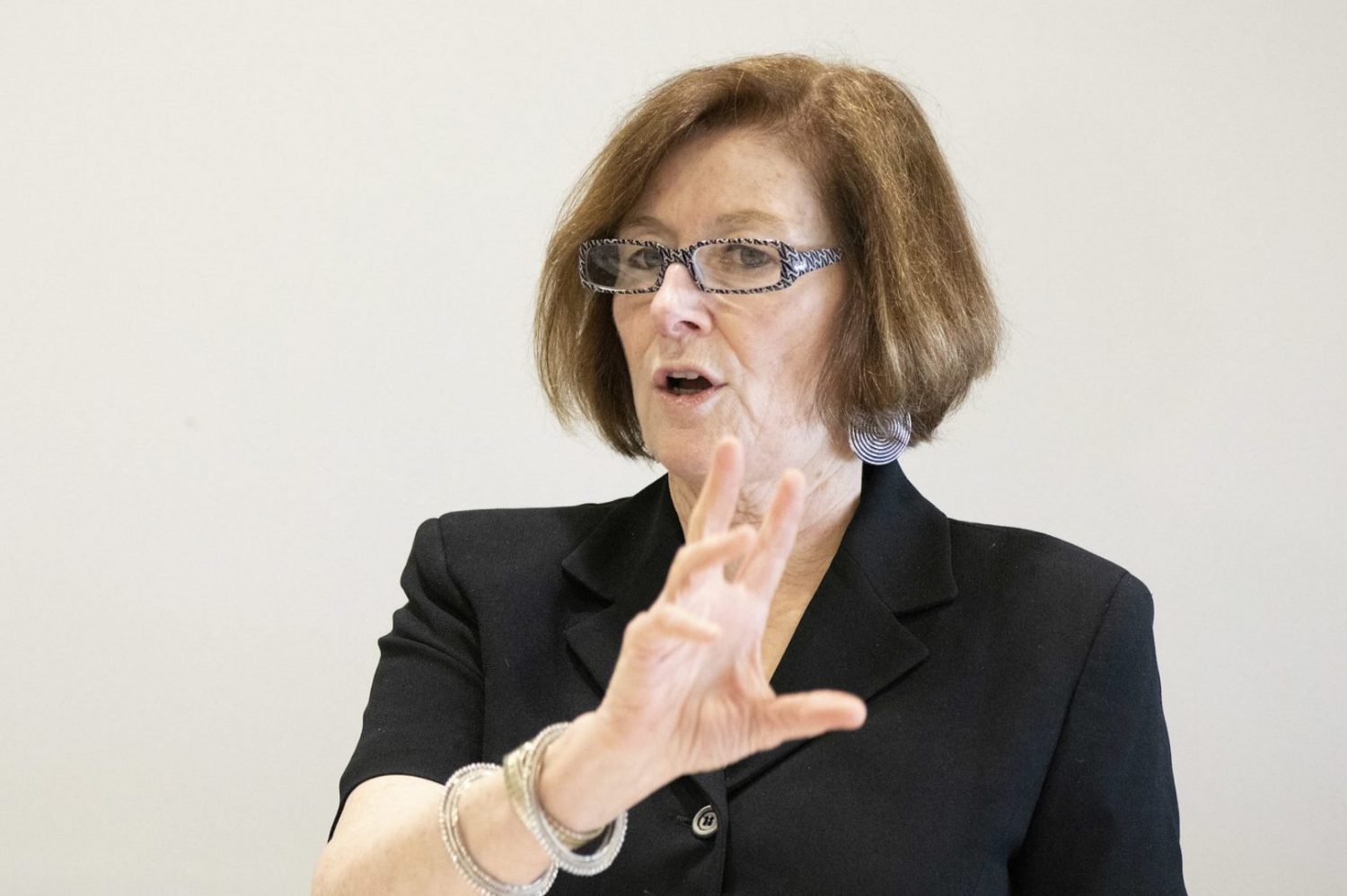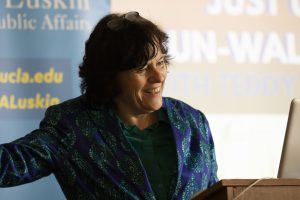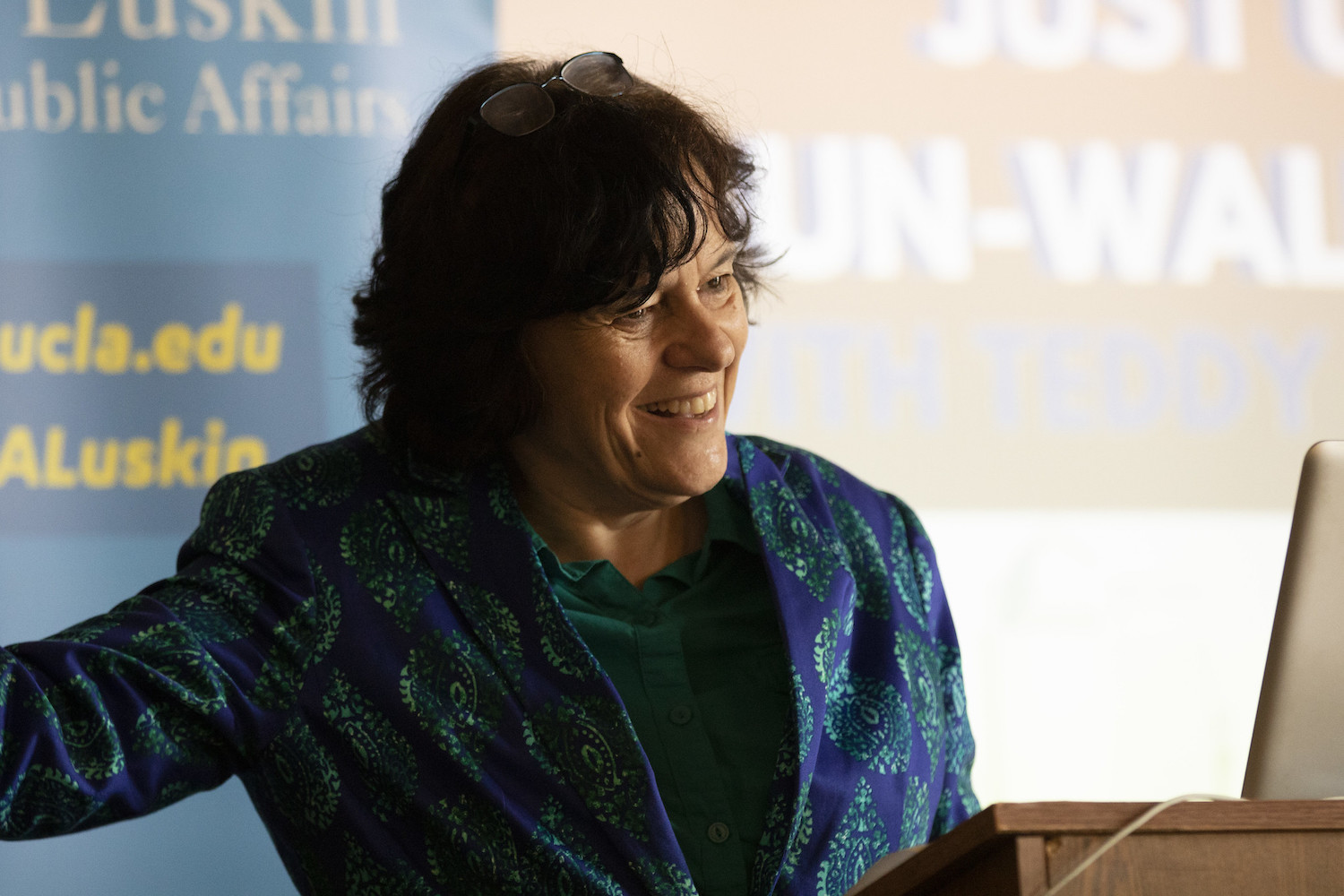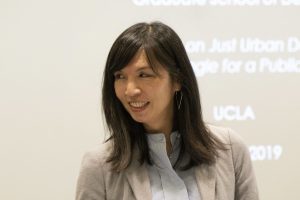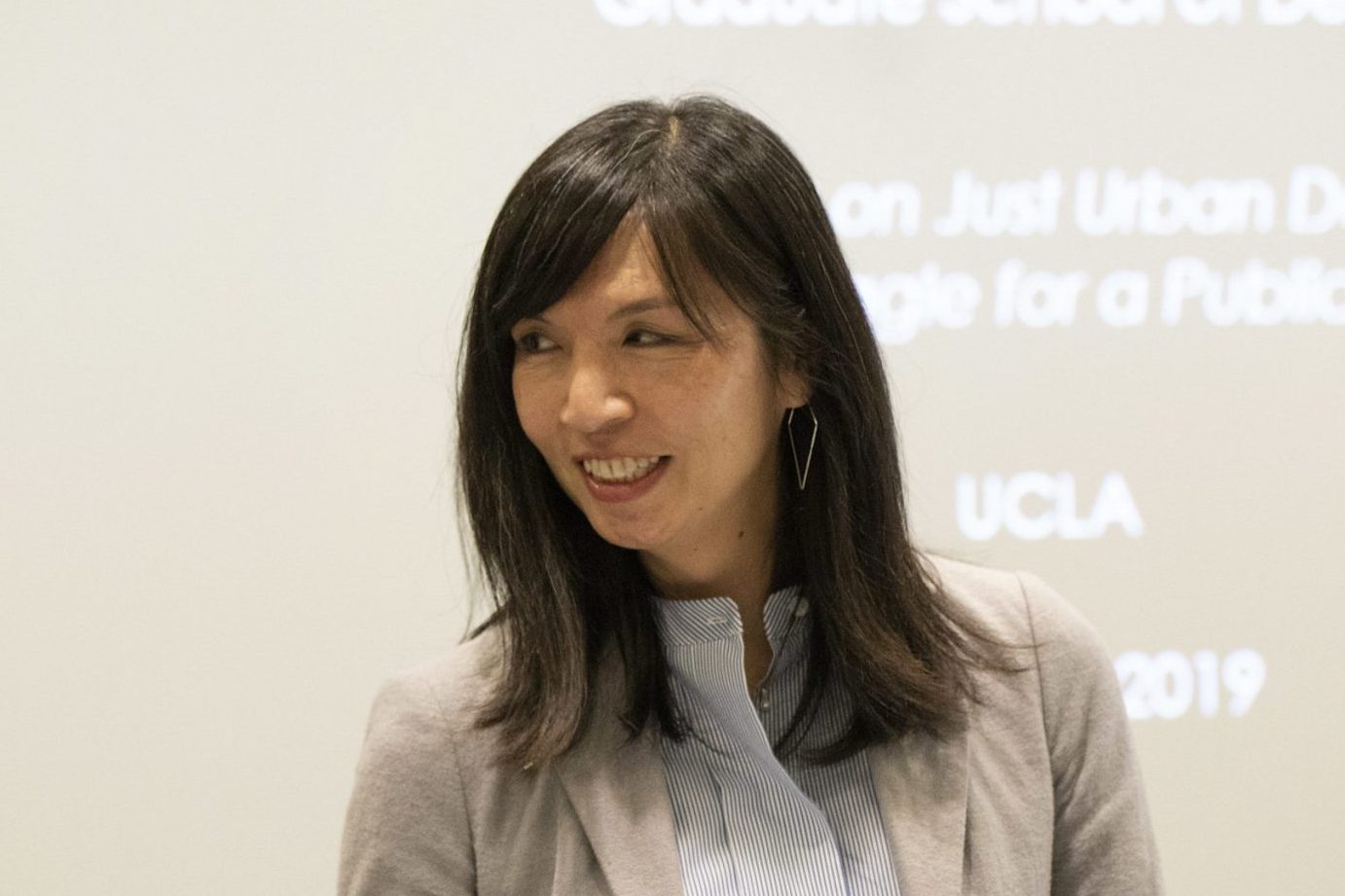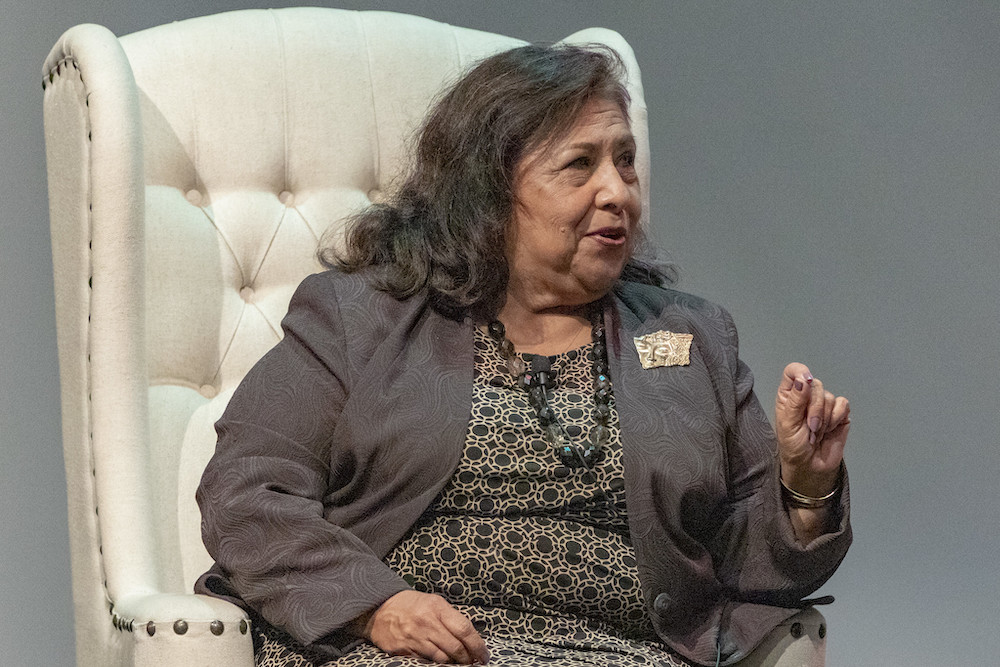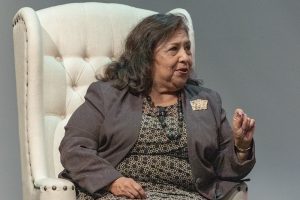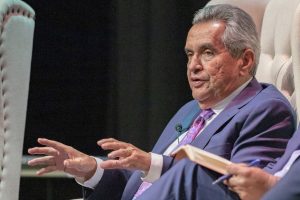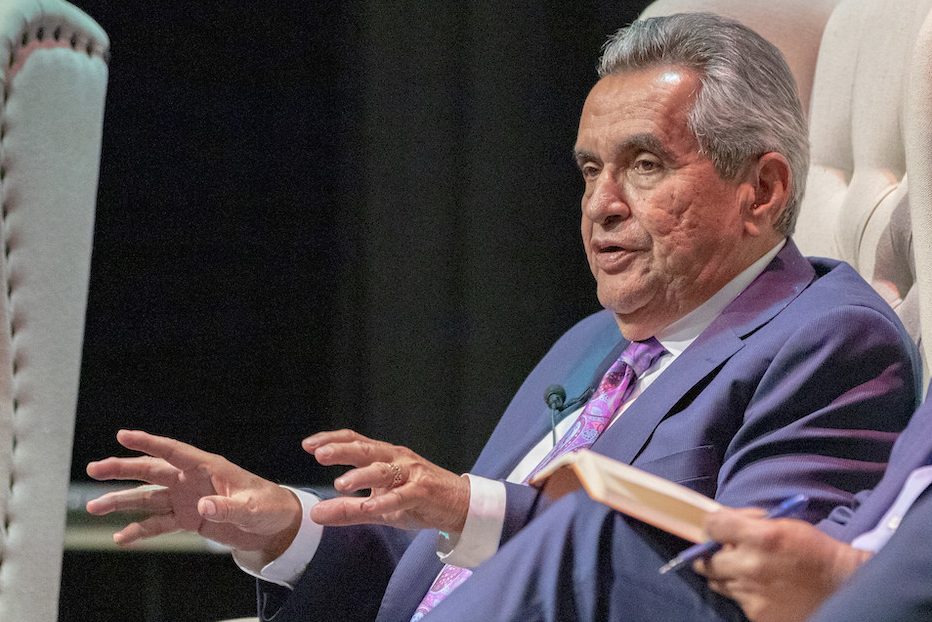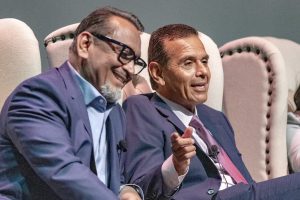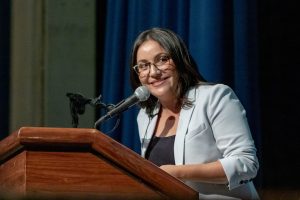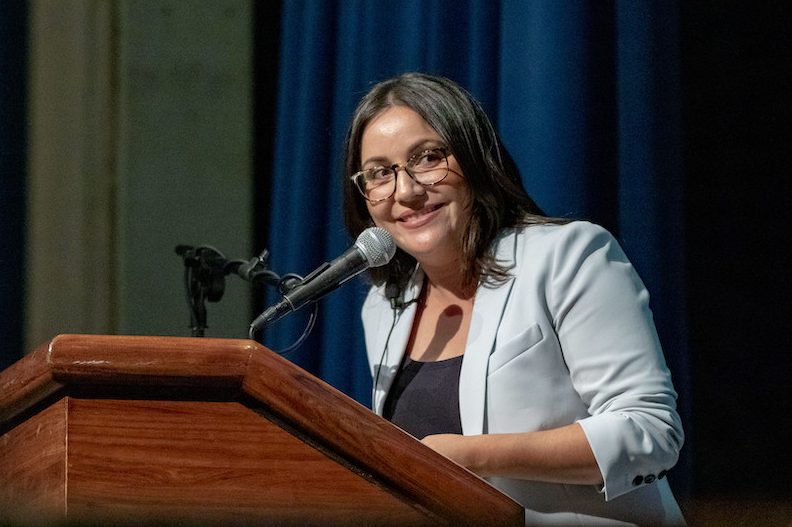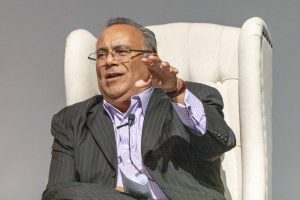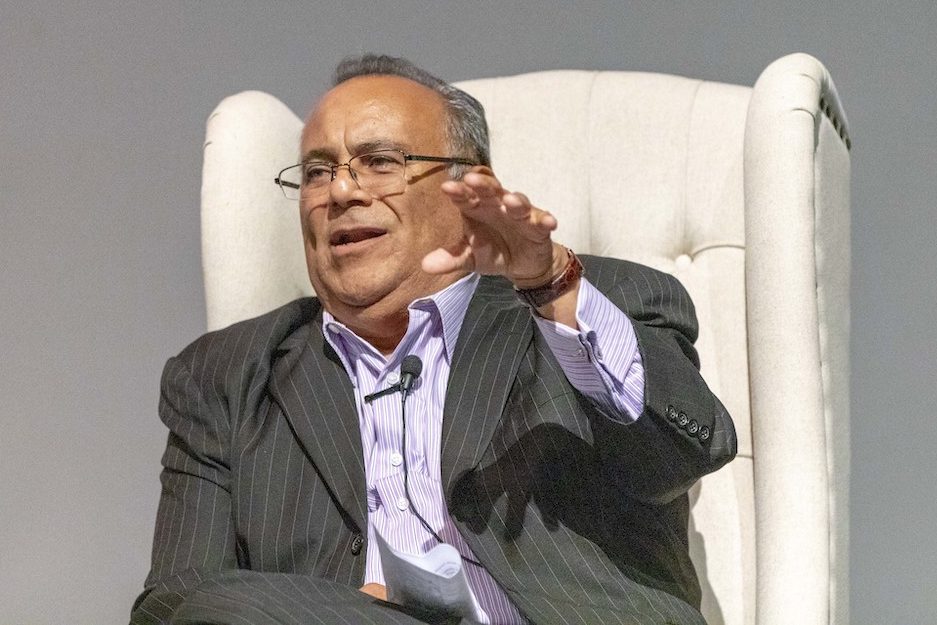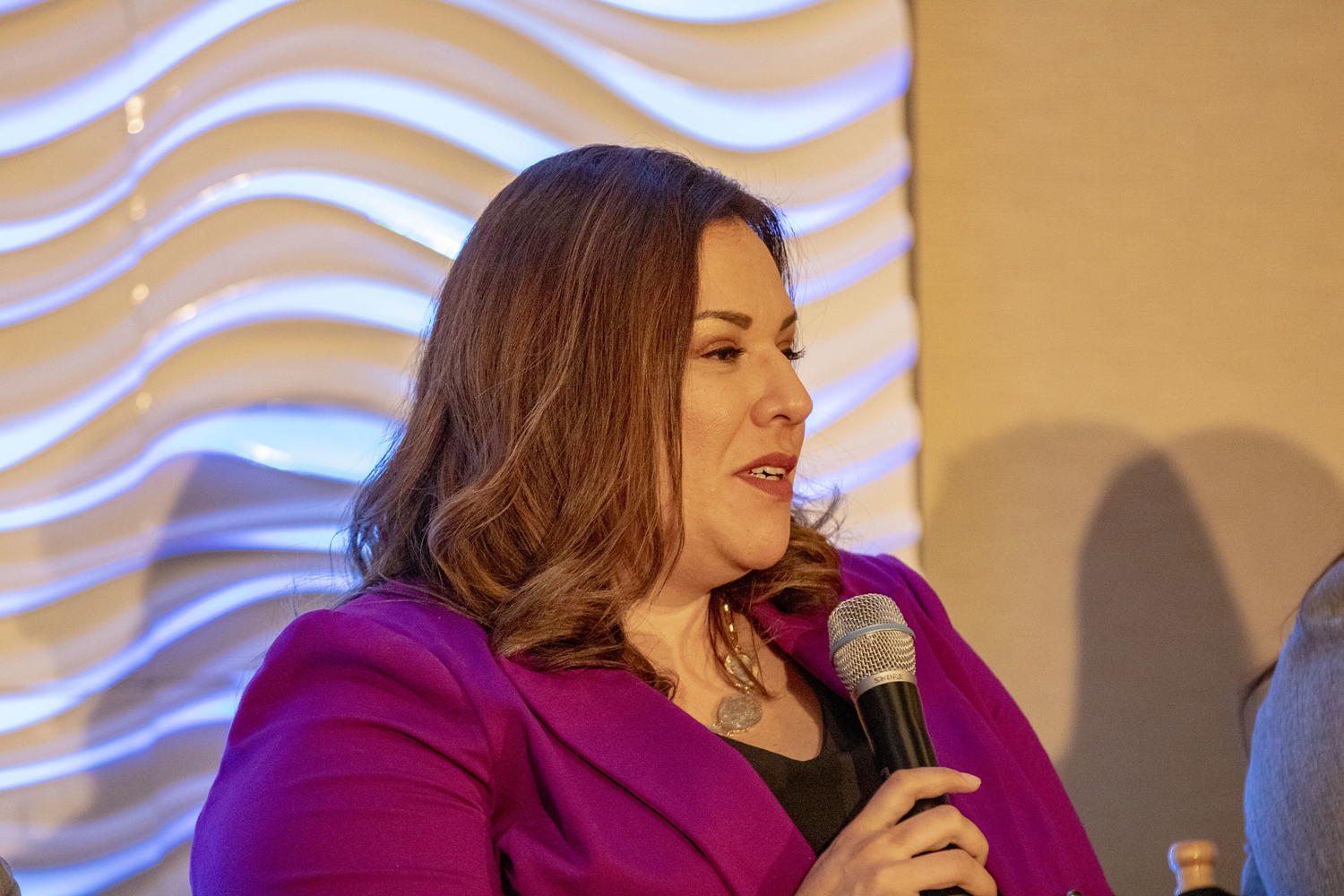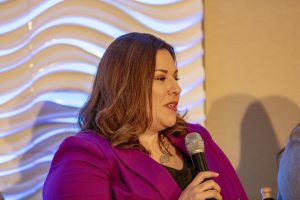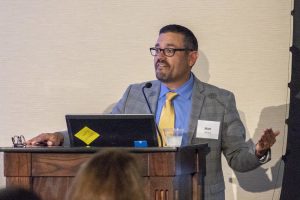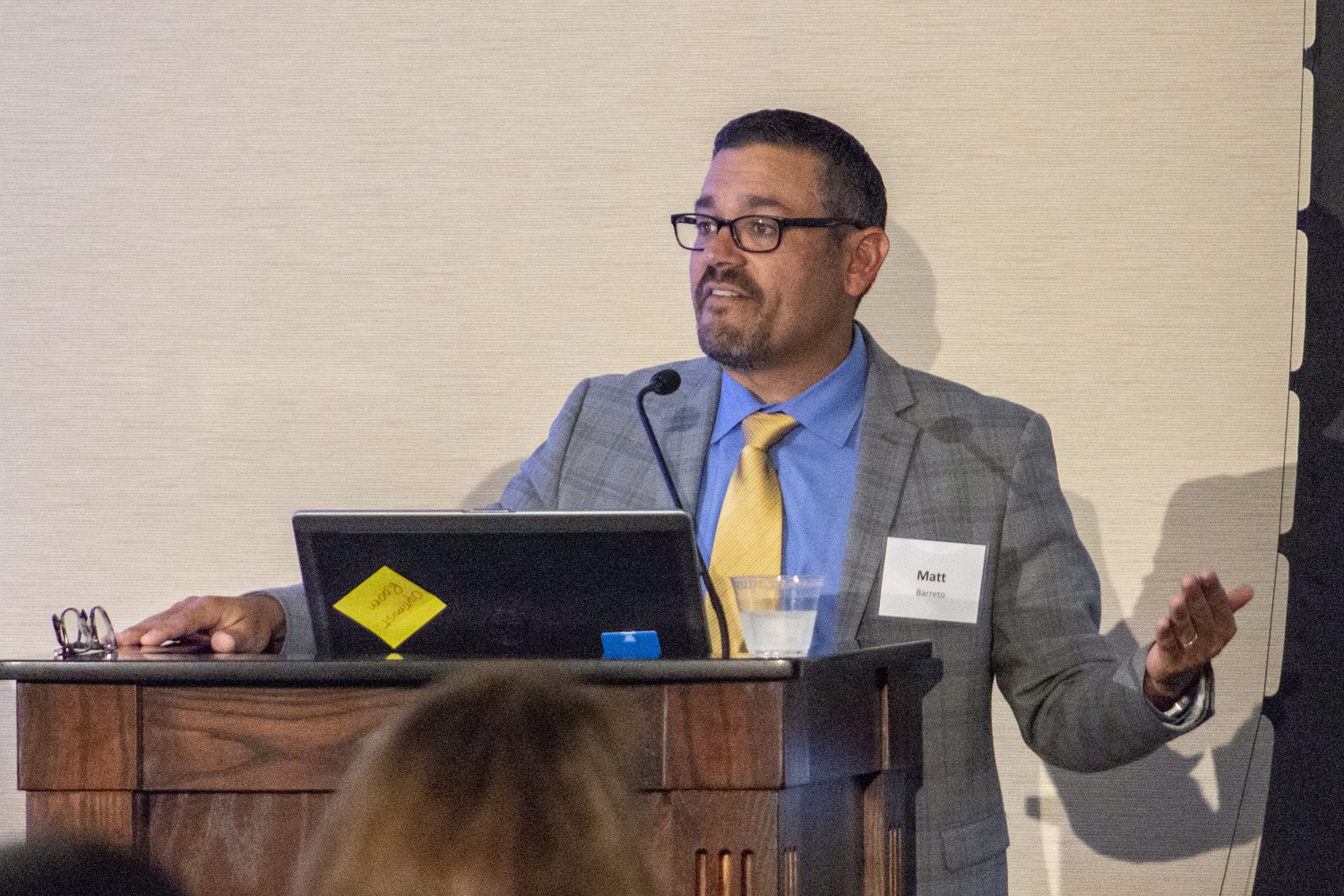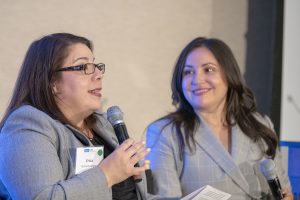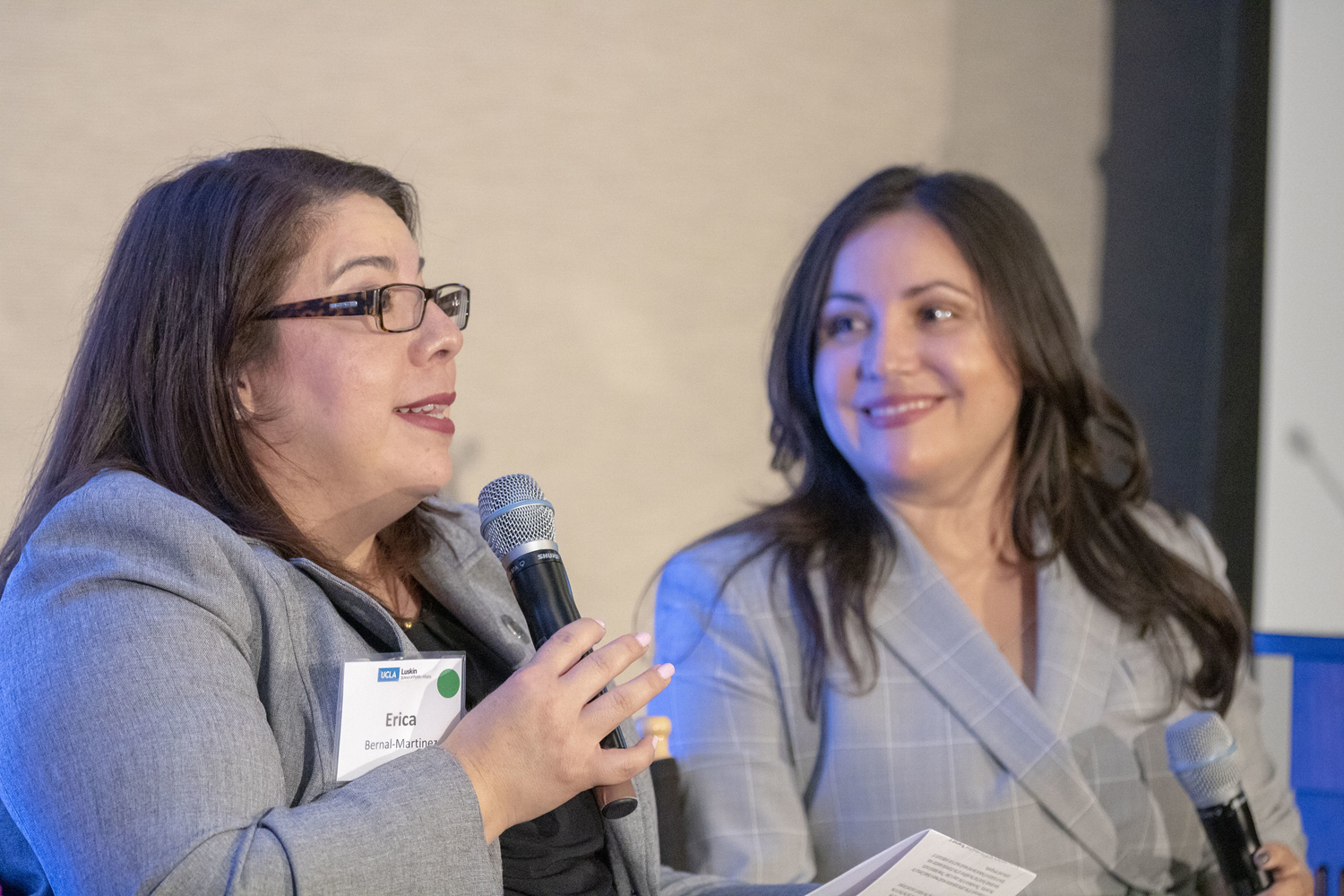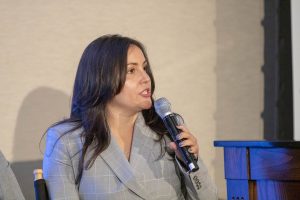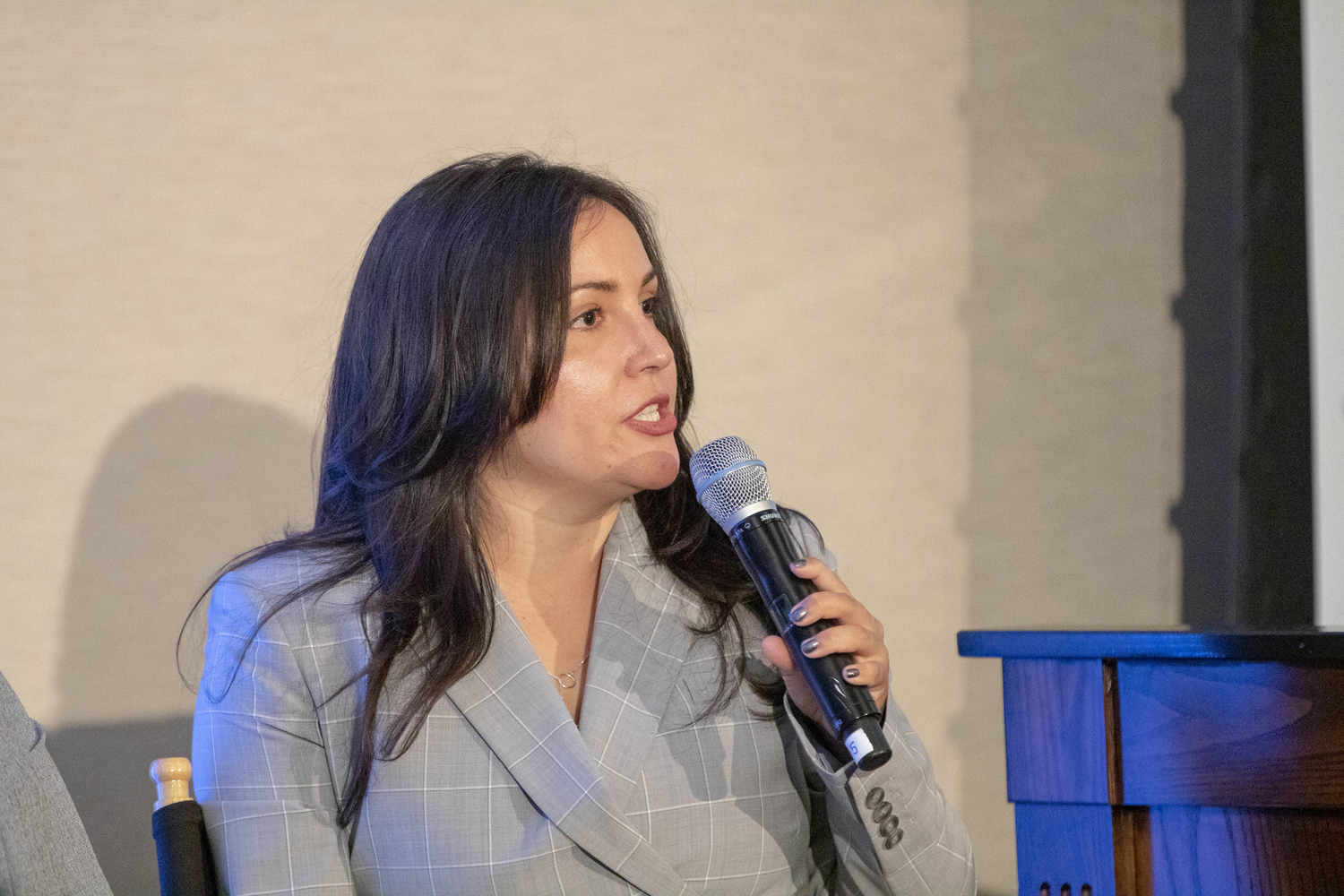Guiding Tomorrow’s Difference Makers Potential internship providers can help ensure that UCLA Luskin's new undergraduate major remains strong as it grows
By Les Dunseith
Inside stately Royce Hall on a recent morning, more than 100 UCLA undergraduates listened intently as their professor spoke about one of the key documents of American democracy — the Federalist Papers.
“The greatest threat to liberty in the eyes of James Madison is faction — that is, the natural tendency of humanity to see their own interests as important and to work together with others who share those interests to try to get their way,” the professor said. “Now the problem with factions is that, while we might see things that they do wrong, if you’re going to have anything that looks like liberty, people have the right to advocate for themselves. Right? You can’t say you can’t go out there and try to make your lot better. That’s hardly liberty.”
It’s a lesson that draws from the past to provide context for the factionalized politics of today. It’s also essential knowledge for a class of aspiring public servants. The person laying this foundation? It’s a man whose influence was essential to creating the educational opportunity his students now pursue — Gary Segura, dean of the UCLA Luskin School of Public Affairs.
The course — Public Affairs 50: Foundations and Debates in Public Thought — taught by Segura in spring quarter was just one of many signposts that the new undergraduate major in Public Affairs is taking shape. Other core courses are being taught, and scores of pre-majors are filling the seats. A class of incoming freshman has been recruited. Transfer students are arriving too. Construction has begun on a dedicated undergraduate office space in the Public Affairs Building. Additional staff are being hired.
But there is still much to be done.
Jocelyn Guihama, director of administration and experiential learning, is hard at work building out the experiential learning component of the major. Time is short. By winter 2020, she expects about 65 Public Affairs juniors to be planning senior-year internships.
To create those opportunities, Guihama is pursuing leads and hammering out details for mentorships in government, in public service agencies and in the many advocacy organizations that help shape policies.
Those partnerships are occurring thanks to supportive people throughout Los Angeles, including some connections close to home like UCLA Luskin alumnus Kevin Medina, program coordinator for the LGBT Campus Resource Center at UCLA. He got his job upon graduation in 2016 with master’s degrees in social welfare and public policy.
Guihama and Administrative Specialist Justin De Toro stopped by his office recently to discuss key assistance Medina is providing to the new major. Guihama noted that Medina had been instrumental in connecting her with a “very large organization in Los Angeles” as a possible internship sponsor.
“I definitely engage with our community in person, as well as through our digital resources,” Medina explained. “We usually have a resource or career fair for LGBTQ and social justice organizations that exist in Los Angeles. We also engage with folks constantly for their paid internship opportunities — for career development for our students.”
Discussions are also underway about placing future Public Affairs students as interns at UCLA’s LGBT Campus Resource Center.
“We know that there are so many centers on campus doing work that is relevant to our students’ interests,” Guihama noted. “So, we hope to connect students to experiential learning opportunities both on and off campus, where students can develop an understanding of what it takes to create social change.”
In his job, Medina provides personal counseling to people “who are at various stages of coming out or [exploring] various relationships to their personal intersectional LGBTQ identity.” His point of view is not far removed from the concerns of many undergraduates.
For example, Medina stressed that “desirability of location is an important advantage of UCLA in terms of quality of life — particularly for folks with multiple marginalized identities. Where am I going to feel safe? Where am I going to find a community?”
For him, that sense of community extends to UCLA Luskin, and Medina is excited to play a role in helping the new major grow. Guihama hopes others — both recent graduates like Medina and the many older UCLA alumni who work in the Los Angeles area — will follow his example.
The experiential learning opportunities are envisioned as an essential step in the undergraduates’ educations, which will culminate with capstone projects.
“The internships have to allow students to test what they’ve learned in the classroom,” Guihama explained. “The senior capstone experience is not only about being out in the community. It’s taking those experiences back to the classroom, reflecting on them, and then building a capstone project with and for the organization that has hosted the student.”
Potential partners may contact Guihama by email or call (310) 569-4491.
